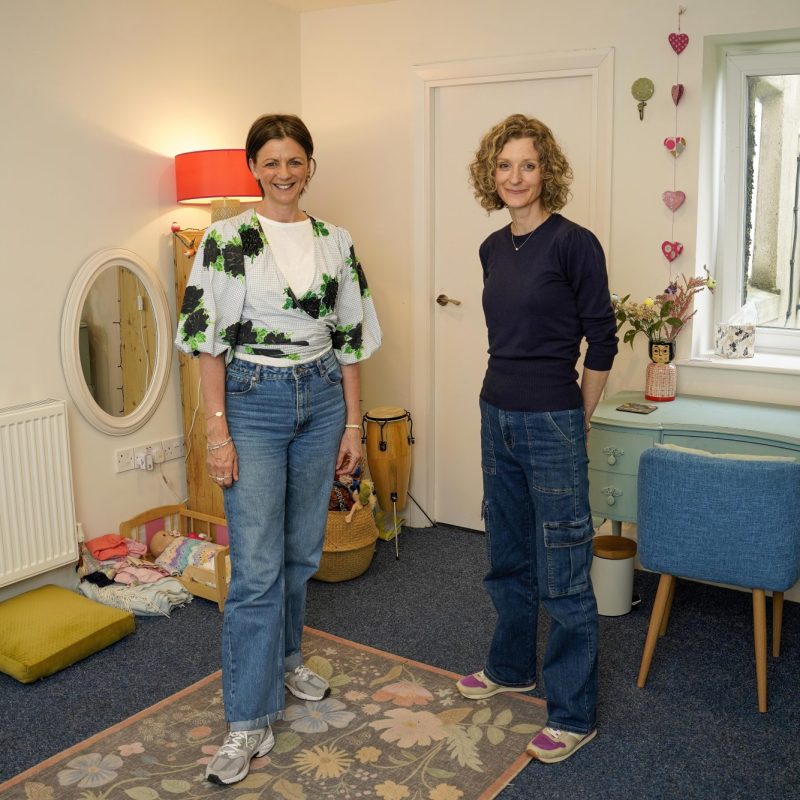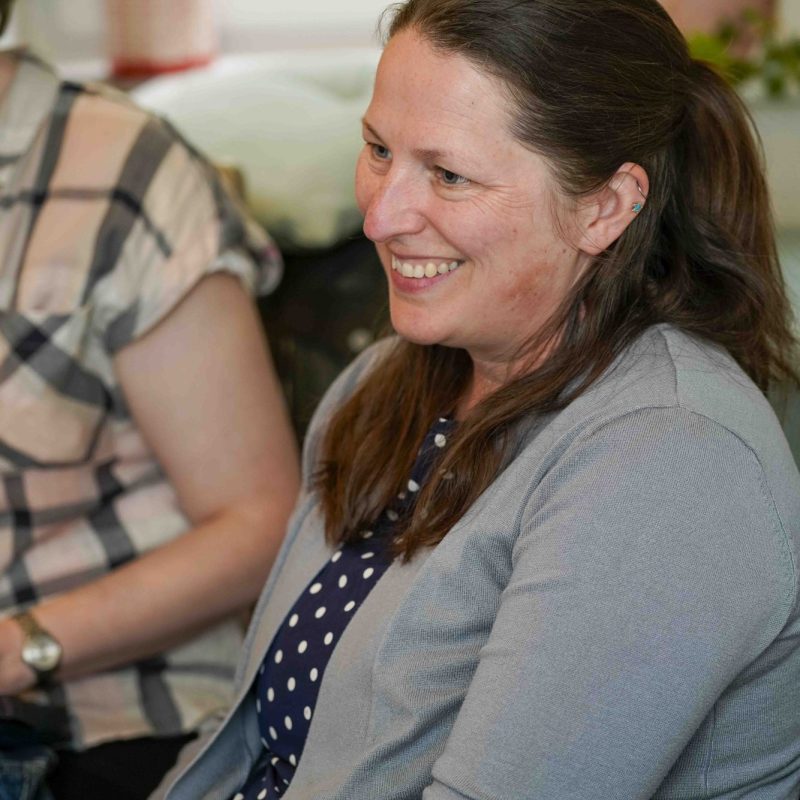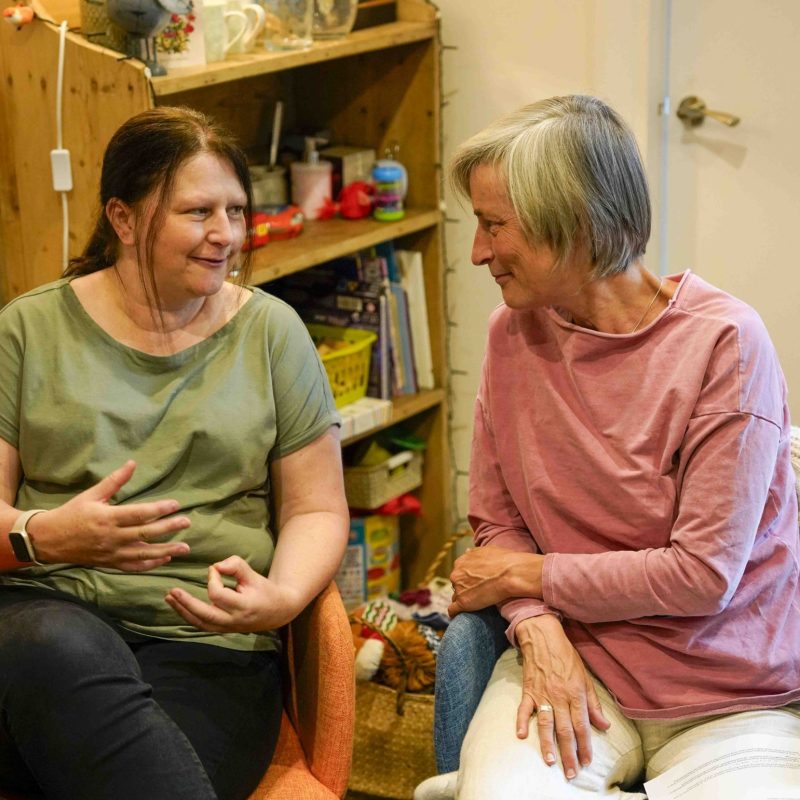Services for Organisations
Our highly trained and experienced team of therapists, counsellors and supervisors can support your team and the children and teens in your care.
We are fortunate to have worked with many organisations who are working hard to best support their most vulnerable children.
We know that providing care and support to vulnerable people can be challenging both emotionally and from an expertise point of view, especially when all the strategies have been tried but don't seem to be having the desired impact.
We know that hearing about the positive experiences of others is the best way for professionals to trust other professionals. Via recommendations and positive feedback, we have built a reputation that allows us to work in many organisations across Lancashire.
“Mental health is defined as a state of wellbeing in which every individual recognises his or her own potential, can cope with the normal stresses of life, can work productively and fruitfully, and be able to make a contribution to his or her own community.”
World Health Organisation




Case description
We thought it may be helpful to describe a case and how the process worked
A well-respected Educational Psychologist whom we have worked with alongside to support a child in the care system, recommended us to a Social Worker and Inclusion Leader at a three form entry Primary School in Lancashire.
The initial consultation allowed the Senior Leadership Team to talk about the challenges they were experiencing as a school. This conversation enabled us to create a bespoke, targeted formulation on around how to support the staff team in moving forward in the direction that they had identified.
A package of support was offered and detailed in a service level agreement which was agreed and signed by all involved.
The package of support offered to this school consisted of different elements to help meet the needs of a particular child who was in the care of his Mother but involved with Children Social Care. The child was struggling to learn in the classroom environment, would flee becoming unregulated throughout the school day, and needed one to one support from a member of staff. The child struggled to follow classroom instructions, exhibited behaviour that left staff feeling helpless and deskilled. The staff team did not want to exclude the child as they were aware of the impact this would have on his sense of self and recognised that school was where he felt safest and had secure attachments with key adults.
The first part of the process was to offer training to the Senior Leadership Team and the key adults around the child. The training we offer is always bespoke to the setting and the training needed for this school was around trauma, polyvagal theory, adverse childhood experiences (ACE’s) and attachment. The training forum allowed for a conversation that understood the individual needs and strengths of their team and the child/family. The process allowed us to identify what was needed to move forward and to help the team of staff feel supported, confident and skilled in their approach. A formulation was devised and shared with the key adults around the child.
A therapist was then identified to work with the child. All our qualified therapists are highly skilled and knowledgeable about child development, trauma, ACE’s and attachment.
The therapist then met the parents/carers to gain a history of the child’s life and an understanding of what was going on at home. Once an assessment of need was completed and shared, therapy began. As always, we worked within a written agreement that ensured a general understanding of how the process of therapy works.
Therapy sessions took place weekly and the therapist used different mediums to encourage the child to process their thoughts and feelings.
Alongside the therapy for the child, support sessions were provided to the key adults working with the child in school. Within these sessions, there was an ongoing conversation about the child’s presentation and how best his needs could be met in school. This involved discussions about the impact of trauma and understanding behaviours via this lens; and then appropriate strategies for staff to use to support the child’s capacity to feel understood and able to trust.
The Therapist provided a contained space which allowed staff to speak openly. Via this process the staff developed their knowledge around attachment, trauma, child development and learned new ways to meet a child’s unmet needs.
The process of working with our therapists is always collaborative, allowing staff to express any concerns or fears safely. This enables staff to receive the emotional support they need which in turn brings a feeling of empowerment when working with challenging children, allowing them to feel in control, skilled, connected to the child and effective.
Feedback from the Inclusion Leader. The process has allowed all adults working with her to gain a shared understanding of what is happening for her and why she may display the behaviours we see regularly. All adults working with * now know what we need to do and say to support her best. The process has allowed a consistent approach to be used whether this is in a small group phonic session, whole class lesson or in the yard at playtime.
What we offer
Therapeutic Play Skills Training
This training is offered to staff in schools and nurseries. It can be provided to a small group of staff or on a one-to-one basis.
In this training, the skills needed to provide in house, one to one therapeutic play sessions to support the development of emotional literacy and emotional regulation capacity are provided. The training takes 5 hours for a small group and needs to be followed up with regular supervision sessions to ensure that the trained staff are working within their capacity as intended and that this therapeutic intervention for ‘low tariff’ children is being provided safely and effectively.
Staff Supervision Sessions
Our supervision sessions (individual or group) combine emotional support and time to reflect, and support the process of adults around the child/teen looking at behaviour via an attachment, trauma and sensory processing lens too.
The sessions are facilitated by highly skilled, qualified supervisors (advanced specialist diploma) working within the two models detailed below:
Page and Wosket (2015)
Hawkins and McMahon (2019.)
Within both individual and group supervision session, staff have said they feel listened too, valuing the warm and accepting relationship offered. They also appreciate the appropriate level of challenge when offered, which can encourage movement into another persons perspective, assisting the formation of their own professional competence and identity within their role. These conditions provided allow staff to develop new insights into ways of relating/ working that benefit the school community.
We facilitate group supervision in many schools settings and the feedback has been that staff benefit greatly from the sense of togetherness that develops when they become part of a group process; they learn new skills, feel more able to understand what children/young people are communicating through their behaviours and learn specialist therapeutic approaches/strategies to help children understand and learn to manage their emotions. Therefore, reducing challenging behaviours that can impact on staff and pupils within the school.
Group supervision also helps to develop the staff support systems within the school and increase knowledge and understanding of children’s presentations and behaviours.
Staff also value the space and time providing away from the busy school environment, allowing them to focus on their own wellbeing.
Within group supervision, staff can also share good practice and experiences, gain support and learn from each other in a protected, predictable space. This results in a feeling of team cohesion and increased confidence in their roles in schools.
Recently group members have said,
"Helen was lovely and very easy to talk to, she made me feel calm and comfortable throughout the whole session."
"The process helped me to understand different ways of thinking and learning about how we all work together but in different ways. I didn't know what to expect from the session but I enjoyed it more than I thought I would."
Children's therapy
Sometimes adults (parents, carers, teachers, social workers) find themselves in the position of having tried everything that they can think of to help a child to make positive change and yet progress doesn’t seem to be being made. This is a tough place to be....
Training, clinical supervision and coaching
Creating a safe, compassionate, restorative space, so the interplay within the relationships can be seen and felt at a pace that is intentional to the needs of the client and/or supervisee's own process.
Our services have been used by
Acorns Primary School
Ashton Community Science College
Barrowford Primary School
Balladen Primary School
Basnett Street Nursery School
Bury and Whitefield Jewish Primary School
Briercliffe Primary School
Casterton Primary Academy
Christ the King RC Primary
Colne Primet Academy
Foulridge Saint Michael and All Angels C and E Primary School
Earby Primary School
Heasandford Primary School
Hendon Brook Short Stay School
Lea Community Primary School
Mellor St Mary's Church of England Primary School
North Chadderton High School
Oakfield Primary School
Oxenhope Primary School
Pendle Vale College
Sacred Heart Roman Catholic Primary School
Spring Hill C.P School
St Andrew's C of E Infant School
St Paul's Church of England Primary School
St Peters Primary School
St Mary Magdalene Primary School
St Mary's RC Primary School
St. Mary’s Haslingden
Steeton Primary School
The Rose EBSD School
Rosewood Primary Schoo
Roselyn House EBSD School
Walverden Primary School
West Street Primary School
Wheatley Lane Primary School
Feedback from The Rose School:
"I have worked with Essere Therapies for well over a year now and have learnt so much from them. I work at The Rose school which caters for students with SEMH difficulties and I was trained in Therapeutic Play skills . The therapists at Essere are always thorough with their training which began with me observing some therapy sessions. Afterwards, we would discuss what behaviours we saw and what the child was trying to communicate. I then carried out some sessions with students which were recorded so that the therapist could watch them and give me feedback, this felt very supportive and I learned a lot.
The whole experience was enjoyable and the therapist was incredibly supportive. Her belief in me gave me the confidence to go on and have my own ‘therapeutic classroom’ in school . I now offer therapeutic play sessions on a one to one basis with a variety of students. Often, students just want a safe place to come and chat and we have found this so beneficial to our setting.
All students sign a contract to create a safe, consistent relationship at the beginning of each therapy term and I explain that although I don’t talk to other staff about our sessions unless there are safeguarding concerns, I do speak to the therapists from Essere who comes in to help me and support me once a month. Some students are fine with this, others ask to meet the therapist which they are always happy to do. This relieves the student’s anxiety around the sessions. I make notes after my sessions and then I meet with the therapist on a monthly basis to discuss students and consider the next steps to helping them. The therapist will suggest different strategies from a trauma perspective which I find invaluable and she is able to explain the behaviours I witness during my sessions, giving me strategies, that can then be shared on a plan with the student to raise their awareness and also support staff when they often don't know what to do.
The knowledge I have gained is fantastic and I simply couldn’t do my job without the input and support I have received from Essere Therapies. The Therapist supports me emotionally too, and I need this as being with so many students can have an impact on my mental health if I don’t take care of myself. I really want to do the best that I can for the students, so I have to put time into caring for me too. The therapist therefore checks that I’m looking after my own wellbeing and helps me to think about ways I can do that.
Sometimes the students want me to be their ‘voice’ to teachers or senior leaders; when this is the case, the therapist supports me in working out how to go about this in the most efficient and effective way without causing undue stress. This has become a really effective way for me to support students and their need to communicate difficult things with others in the staff team.
Essere Therapies aren’t only available to support me face to face, I can contact them any time by phone or email and they always respond promptly whatever it is I need support with. They also often just ‘check in’ with me too, which is a support in itself and I feel is important to anyone in a therapeutic type role.
The training, knowledge and experience that Essere Therapy offers in our setting is invaluable and has had such a positive impact on the students and myself. I look forward to working with them in the future and I highly recommend their services to any setting."
Higher-level Teaching Assistant, The Rose School
Services for Nurseries
We have provided training and supervision in local nurseries. The training is around understanding children’s behaviours, children and anxiety, polyvagal theory,and understanding attachment in the nursery setting.
Barrowford Pre-School said:
"As a busy Early Years setting we are always looking for training for our team which does not impede on the day to day routine. Essere Therapies were able to provide training to us at a time and venue to suit us.
We are a very reflective team who strive to develop our knowledge base to meet the individual needs of our children and their families. We often find that training providers cater training with a ‘one size fits all’ attitude. However, Essere Therapies take the time to speak to you in the weeks prior to the training delivery and they really do listen to the needs and wants of the client.
Each training session which they have delivered to us had been tailored for us and therefore exactly met the training needs of our team. It is also delivered in a very engaging and comfortable way with confidentiality and trust central to the sessions. This enhances the engagement and contribution of all participants. Every team member takes away something that will support them in their practice and more often than not they also take away something that helps in their own personal life.
We will definitely continue to use Essere Therapies for our training needs as it positively impacts the quality of daily practice we deliver to our individual children and their families. Helen and Catherine are not only amazing trainers but also amazingly kind human beings."
Our nursery services have been used by:
Barrowford Pre School Nursery
Lakeview Children Nursery
Basnett Street Nursery
Bradley Street Nursery
Little Blossoms of Barrowford Nursery
Little Buttercups of Trawden Nursery